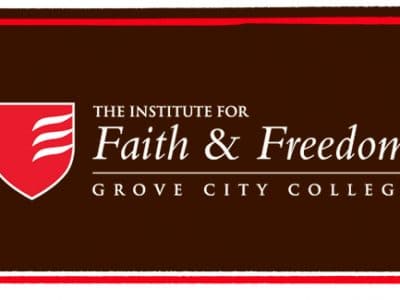In its rejection of the American über-Olympian’s support for the 2016 Chicago games, the International Olympic Committee signaled an opportunity for the resurgence of Western Christian culture.
In his book A Country I Do Not Recognize, Robert Bork cites a June 2003 New Criterion article by Kenneth Minogue titled“Christophobia and the West.”Minogue identifies the three types of religious quests for meaning sought after by intellectual elites: progress, communism, and what he calls “Olympianism.”
He argues that as the United States and the world’s standard of living progressed through American technological advancements, American intellectual elites—or progressives—increasingly became hostile toward Christianity in favor of secularism based in scientific rationalism. “Christians might be believers in progress,” Minogue wrote, “but progressives were likely to find Christianity an optional extra, if not an actual impediment to the advance of reason. . . .” Progressivism eventually gave way to communism as the preferred elitist belief system, but as Soviet communism collapsed, the elites adopted Olympianism.
Like secular progressivism and communism, Olympianism, Minogue says, “is a project of the intellectual elite that believes that it enjoys superior enlightenment and that its business is to spread this benefit to those living on the lower slope of humanity.” He defines the belief system, or religion, “as a vision of human betterment to be achieved on a global scale by forging the peoples of the world into a single community based on the universal enjoyment of appropriate rights. Olympianism is the cast of mind dedicated to this end, which is believed to correspond to the triumph of reason and community over superstition and hatred” (i.e., Christianity).
Both Minogue and Bork state that the end game of Olympianism is a secular global community governed by world laws. Minogue argues that these Olympians attack Western Christian culture because only Christianity can stand in the way of the Olympians, while Bork adds that Olympians attack the constitutional foundations of the United States via the U.S. Supreme Court in their quest for globalism. Strategy: promote global governance by undermining the foundations of Western culture: Christian values and the U.S. Constitution.
President Obama is the personification of Olympianism—the über-Olympian. Taking the baton from a 20th century Olympian U.S. Supreme Court, Obama is sprinting toward the transformation of American society into a “country we do not recognize” (a paraphrase of Justice Antonin Scalia in Board of County Commissioners, Wabaunsee, Kansas v. Umbehr, 1996), while seeking a broader role for the world community in the affairs of U.S. law. We should take notice that the International Olympic Committee rejected President Obama. Certainly some on the IOC must have recognized the significance herein of saying no to him. If Chicago’s bid would have succeeded, the political Olympians would have been ecstatic about the implied acceptance of the Obama-Olympianism agenda.
In essence, the religious contest between Olympianism and Western Christian culture is not over. Western Christians will prevail by grappling with Olympianism at its root. Minogue wrote, “Olympianism burrowed like a parasite into the most powerful institution in of the emerging knowledge economy—the universities.” I suggest that we Christians humble ourselves, pray, and vigorously support Christian education in all its forms. Moreover, we should support beachheads established at secular universities like Professor Robert George’s James Madison Program at Princeton. And we must understand, as Minogue teaches, that the Olympians proselytize through the media. Likewise, Christians should continue to bulk up in this field.
The über-Olympian lost with the IOC, but the contest is not over. Let’s get in the game.


